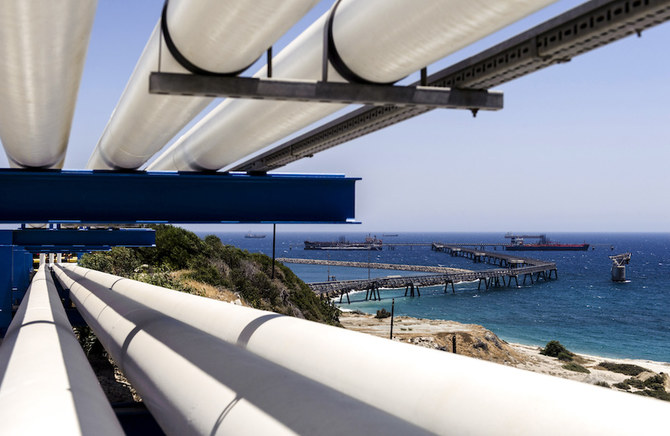BRUSSELS: The EU and Egypt on Saturday urged Turkey to reconsider plans to start exploratory drilling for oil and gas off Cyprus, already condemned as illegal by the European Union.
The Egyptian foreign ministry warned of the repercussions of "any unilateral measures on the security and stability of the Eastern Mediterranean region."
"Any actions by states in the region need to abide by the rules of international law and its provisions," the ministry statement said.
The EU's diplomatic chief Federica Mogherini said: “We express grave concern over Turkey’s announced intention to carry out drilling activities within the exclusive economic zone of Cyprus,” .
“In March 2018, the European Council strongly condemned Turkey’s continued illegal actions in the Eastern Mediterranean,” she added.
“In this context, we urgently call on Turkey to show restraint,” she added, warning that the EU would “respond appropriately to any illegal action that violated Cyprus’s rights.”
On Friday Turkey sent out a message on NAVTEX, the international maritime navigational telex system, announcing its vessels would be carrying out drilling operations in the Mediterranean until September.
According to reports in the Cypriot media, the operation will encroach on Cyprus’s exclusive economic zone.
Turkey first announced it would be drilling for oil and gas off Cyprus back in February.
The discovery of gas reserves in the eastern Mediterranean has prompted claims by the internationally recognized Greek Cypriot government and Ankara, which backs a breakaway Turkish Cypriot administration in the north of the island.
European Union member Cyprus has been pressing to develop offshore gas deposits and has signed deals with energy giants Eni, Total and ExxonMobil that have seen them carry out exploratory drilling.
Ankara claims that such exploration deprives the Turkish Cypriot minority of benefiting from the natural resources that surround the island.
In February 2018 a drillship for Italy’s Eni abandoned an attempt to search for gas off Cyprus after it was blocked by Turkish warships.
Turkey has had thousands of troops stationed in the northern third of the island since invading in 1974 in response to a Greek military junta-sponsored coup aimed at uniting Cyprus with Greece.
The northern part of the island was declared the Turkish Republic of Northern Cyprus (TRNC), which is only recognized by Ankara. UN-sponsored efforts to reunify the island have failed.



























